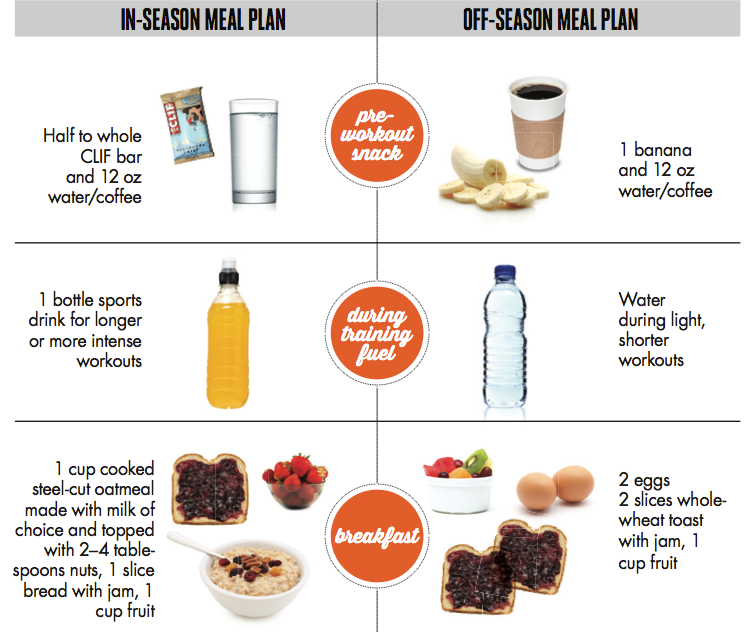Make These Nutrition Swaps In The Off-Season

When the training volume trails off, it’s time to also adjust your eating habits. Intuitive enough, right? But adapting your diet for the off-season does have some common pitfalls. Here’s what you need to know.
This is the time of year when many triathletes are looking for advice on how to change their daily eating to match their decreased training volume. Most have trained hard and eaten healthily all season and want to ensure they have a concrete plan through an off-season marked by holiday parties, cold weather and unstructured training that, all combined, can lead many into a hole they have to dig themselves out of come race season. While each of us has varying nutritional needs and goals, I chose one example of how I helped a triathlete adapt his nutrition from in-season to off-season.
The plans at right were created for a 160-pound male who was training an average of 10–12 hours per week in season for a 70.3 race in the fall. In the off-season he is planning to reduce his intensity and training volume to 5–6 hours per week. He wants to maintain his weight within a few pounds of his in-season racing weight.
Overall, his need for total calories, carbs, protein and fats are all (not surprisingly) lower in the off-season. What you might be surprised by is that no one macronutrient disappears from his meal plan, but amounts of each are decreased throughout the day. Most triathletes I see do work out for much of the off-season and need balanced meals and snacks to prevent excess hunger and overeating at holiday parties and during the additional evening downtime.
With a bit of proactive planning, we can all enjoy our off-season as a time to recharge while still maintaining our energy, desired weight range and health. Look for a registered dietitian who is also a board-certified specialist in sports dietetics (CSSD) if you would like help creating a customized plan to fit your specific off-season nutritional needs.
Lauren Antonucci is a board-certified specialist in sports dietetics, three-time Ironman finisher and the founding director of Nutrition Energy in New York City.